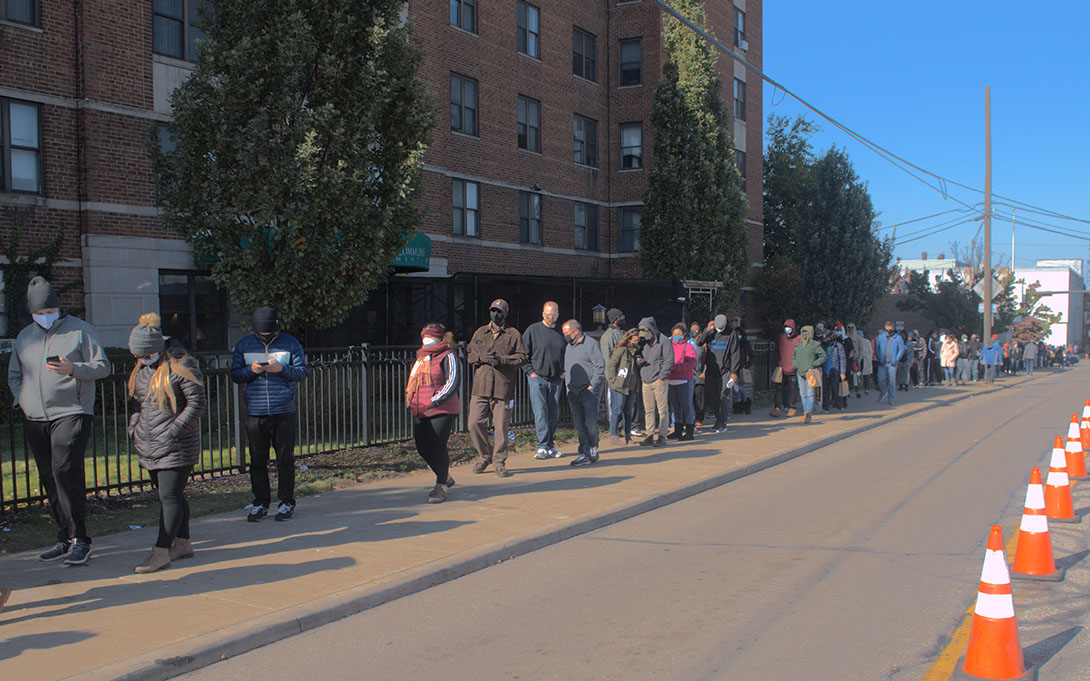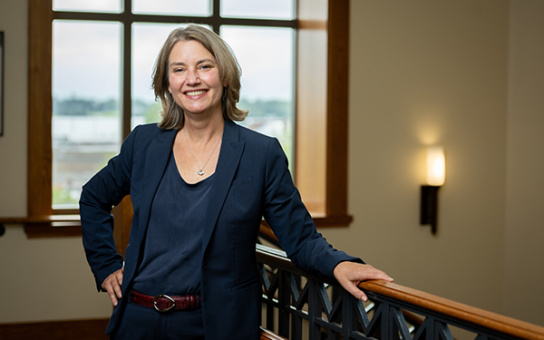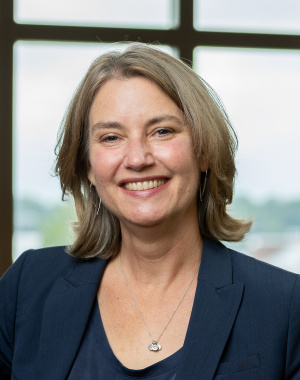
Of all of the recent headlines about U.S. government dysfunction, election denialism, and voter dissatisfaction, one in particular worries Ford School political scientist Jenna Bednar. The New York Times reported in October 2022, “Voters See Democracy in Peril, but Saving It Isn’t a Priority.”
“When we lose interest in preserving our system of government, and we care less about our democratic norms, we see this brutal polarization which is eating away at the country,” she says. “We need to take a stand to support democracy, even as we agree to disagree on specific issues.”

Bednar, the school’s newly appointed associate dean for academic affairs, has spent her career looking at the underpinnings of stability in federal states. She sees that democratic systems of government are complex and imperfect. Striving to improve them is a constant process, with ebbs and flows, requiring work and resilience, defined as democracy’s ability to recover from challenges.
In 2016, the Economist Intelligence Unit downgraded the U.S. to a “flawed” versus “full” democracy. The status has not changed in the aftermath of the 2020 election.
Bednar notes that two elements undergird democratic systems: institutional design and democratic norms and culture.
“The genius of the U.S. Constitution is its robustness to be adaptive and functional—the multiple layers of checks and balances, and the ability of state and local governments to tackle a wide range of issues on their own,” she says.
If we don’t do this work, we lose our democracy, for starters, and then our social fabric and social connections. Paradoxically, we may also lose our confidence in the market, which relies much more on trust that is commonly perceived.”
One aspect of Bednar’s work has examined how state governments can play major roles in a wide range of issues that sometimes get blocked in Washington, including voting and reproductive rights, access to health care, and climate adaptation and mitigation. Significantly, while only 39 percent of Americans trust the federal government to handle domestic problems, more than half have confidence in their state governments, and two-thirds trust their local governments. Bednar notes, “It’s why U.S. Justice Louis Brandeis called states the ‘laboratories of democracy.’”
“As policy innovators, shapers of foreign policy, and even defenders of U.S. democracy, states have far more influence than is commonly recognized, and they are poised to build on it in the years to come,” she has written.
Bednar argues that the second key element, democratic norms, are “the muscles on institutions’ bones.” To sustain democracy, mutual tolerance (accepting the legitimacy of political competition and competitors) and forbearance (exercising restraint in the use of power) are assumed. Other norms include accepting the results of elections, belief in the rule of law and that all are equal before it, and encouraging citizens to participate in their democracy. Traditionally the norms have been socially enforced, so people believe in a common understanding of expected behavior, and that others will support them in upholding those norms.
The fragmentation of media and influence of social media have contributed to the breakdown of those norms. Other factors, Bednar notes, include geographic self-selection, so that people are encountering less diversity; identity politics; and economic struggles that can be blamed on others. She attributes the polarization to “affective polarization,” through which individuals are drawn closer to their own political groups while demonizing opponents.
How to combat that feeling of disaffection? Bednar’s prescription is to start with the basics. People need to feel connected to their government at whatever level they can. “Government can’t ‘happen’ to people,” she says. Instead Bednar promotes “human-centered development” to help breach the divides: policy designed by and with the affected community.
“When they have agency in implementing the policy and exercising their discretion, it elevates community values in goal-setting and implementation,” she says.
“If we don’t do this work, we lose our democracy, for starters, and then our social fabric and social connections. Paradoxically, we may also lose our confidence in the market, which relies much more on trust that is commonly perceived,” she warns.
In the end, Bednar hopes that saving democracy will, indeed, be a priority. At the Ford School, Bednar has been charged with leading a project, currently in a conceptual stage, known as the Resilient Democracies initiative. The initiative would seek to add some muscle—rebuilding democratic norms through curriculum, research, and opportunities for students to practice “doing” democracy.
By Daniel Rivkin
More in State & Hill
Below, find the full, formatted fall 2023 edition of State & Hill. Click here to return to the fall 2023 S&H homepage.
